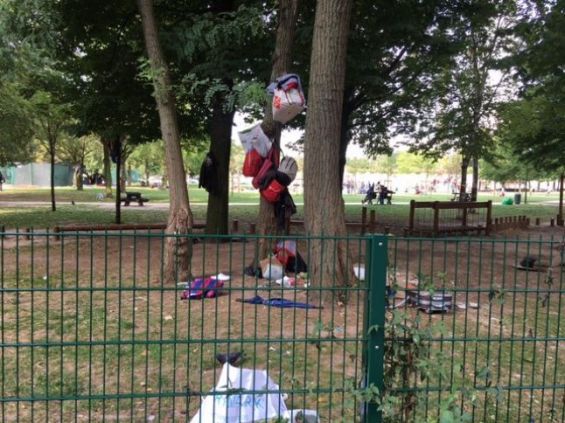They are unaccompanied minors who left North Africa, mainly Morocco, for Europe. In Belgium, most of them are addicted to drugs, roaming the streets of Brussels, breaking into properties and stealing to survive.
Their alarming situation and very young age have made headlines in the European country, with NGOs and minor reception centers raising concern over this phenomenon.
In Brussels, they are estimated to be a group of «ten to twenty youngsters, aged between 10 and 14 years old», wrote Flemish-language newspaper Standaard earlier this week.
Very young minors in the streets of Brussels
Flemish youth facility Minor-Ndako is one of the Belgian minor shelters that was surprised by the particular situation of these minor migrants. «We used to see minors that are generally aged between 15 and 18 years old but this year we are dealing with children», Johan Vangenechten from Minor-Ndako told Yabiladi.
To the activist, these young minors, who are mostly from Morocco, have reached the capital of Belgium after going through several countries, making stops-by in Spain, France, Italy, Germany, the Netherlands and sometimes even Sweden.
In addition to their young age, these unaccompanied minors are left to their own device. «They are living in the streets, where they are addicted to glue, ether and psychotropic pills», Vangenechten stated.
«Given their young age, these are dangerous substances», he argued. But this is the factor that make their stay in Brussels most terrible. According to the NGO, which welcomed some of them for separate and brief periods, these minors prefer the streets over reception centers. «Most of them live in abandoned houses and in train stations», said Vangenechten, adding that they refuse to stay in minor facilities.
According to the Belgian activist, this attitude could be blamed on their addiction. To him, it is a vicious circle that makes them go back to the streets, even after spending short periods in shelters. The same reasons that keep them out of reception centers push them to steal, revealed Minor-Ndako.
«They steal because they have to keep up with their addiction», Vangenechten added. Just recently, the same group of minors have broken into three local pharmacies in the suburbs of Brussels to steal pills and substances.
One of the minors who was staying in Minor-Ndako was caught by the police in one of these operations. According to Vangenechten, the minor was sent to a closed center.
The streets over reception centers
The unfortunate situation of these minors have pushed other local reception centers in Brussels to address the problem and try to find a solution. But solutions can be hard to find, when it comes to the lifestyle and attitude of these youngters, according to Belgian NGO Synergie 14.
For the latter, which has a reception center for minors, the most challenging thing about the phenomenon is the fact that these minors «have formed groups (…) and they prefer to go back to the streets to their friends than stay in reception centers».
Drugs make «them hard to handle», a member of the NGO told Yabiladi. «We believe that they were like that before coming to Brussels and maybe even before crossing for Europe. In Morocco, they had to go from a city to the other to reach Tangier and then try to cross for Spain», the same member explained.
To the NGO, new solutions and methods must be adopted to deal with the terrible situation of these kids. «The problem here is not about reception centers but about the particular case of these youngsters who refuse to integrate (…) it is not a mainstream problem that can be solved through classical structures and solutions», the activist argued.
According to Synergie 14, not having a clean record and not being able to successfully integrate in reception centers would not help these migrants get a better life in Belgium.





 chargement...
chargement...













